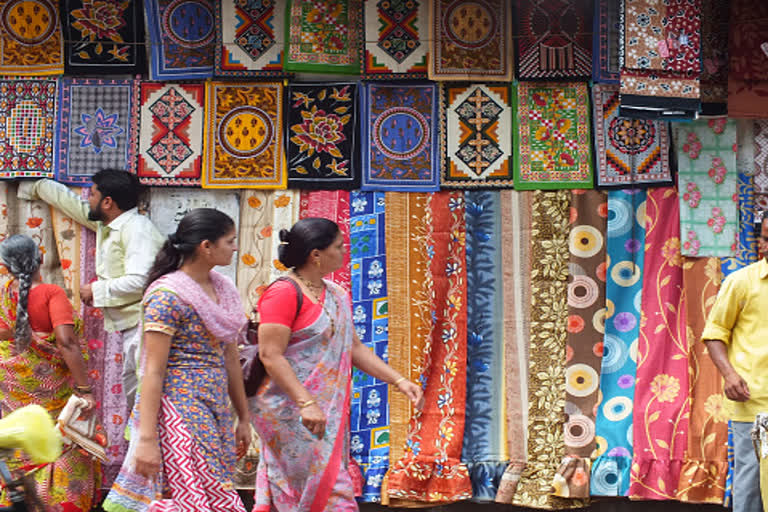Business Desk, ETV Bharat:The coronavirus outbreak in India has shook the economy like never before, making consumers increasingly cautious about spending money, especially when incomes have taken a hit too.
On Tuesday, Union Expenditure Secretary T.V. Somanathan pointed out that 40% of the cash transfers directly into the beneficiaries’ accounts recently under various government schemes for public welfare have been saved and not spent.
Speaking at an event, Somanathan said all personal services activity beyond finance and insurance, like cinema halls, malls and restaurants have been severely impacted.
“I don’t think a fiscal stimulus or a diktat from the government can make people re-enter these spheres of activity. The revival will really come when the psychology of the pandemic begins to ebb,” he said.
On Tuesday, the Reserve Bank of India’s (RBI’s) annual report also mentioned that an assessment of aggregate demand during the year so far suggests that the shock to consumption is severe, and it will take quite some time to mend and regain the pre-Covid momentum.
“Private consumption has lost its discretionary elements across the board, particularly transport services, hospitality, recreation and cultural activities,” the report said.
“Urban consumption demand has suffered a bigger blow – passenger vehicle sales and supply of consumer durables in the first quarter of 2020-21 have dropped to one-fifth and one-third, respectively, of their levels a year ago,” it added.
Read more:IPOs are back after Covid lull
Meanwhile, an increased tendency is seen among Indians now to save money in anticipation of uncertain times ahead. According to recent reports, banks in India have seen money in fixed deposits (FDs) increase by Rs 6.1 lakh crore during the period between April and June. This is more than twice the Rs 3 lakh crore of FDs added by banks during the same period in the previous fiscal year.
A report by UBS released in mid-July also said that Indian households have held on to money and invested it in financial instruments over the past three months as Covid-19 pandemic brought economic activity to a near standstill.
According to the UBS analysis, while forced savings could be going up in the formal sector on income continuity, a large chunk of labour employed in the informal sector would have increased precautionary savings despite stagnant/reduced income by lowering consumption.
However, experts expect India’s consumption situation to improve in the medium term. Data analytics firm IHS Markit forecasts that India’s consumption expenditure will double from $1.6 trillion in 2020 to $3.2 trillion by 2030.
“An important positive factor for India is its large and fast-growing middle class, which is helping to drive consumer spending. Total Indian consumer spending is forecast to grow by 42% between 2020 and 2025, measured in dollar terms at constant prices,” IHS said in a statement in July.
RBI also noted in its annual report that private consumption is expected to lead the recovery when it takes hold, with “non-discretionary spending leading the way until a durable increase in disposable incomes enables discretionary spending to catch up”.
